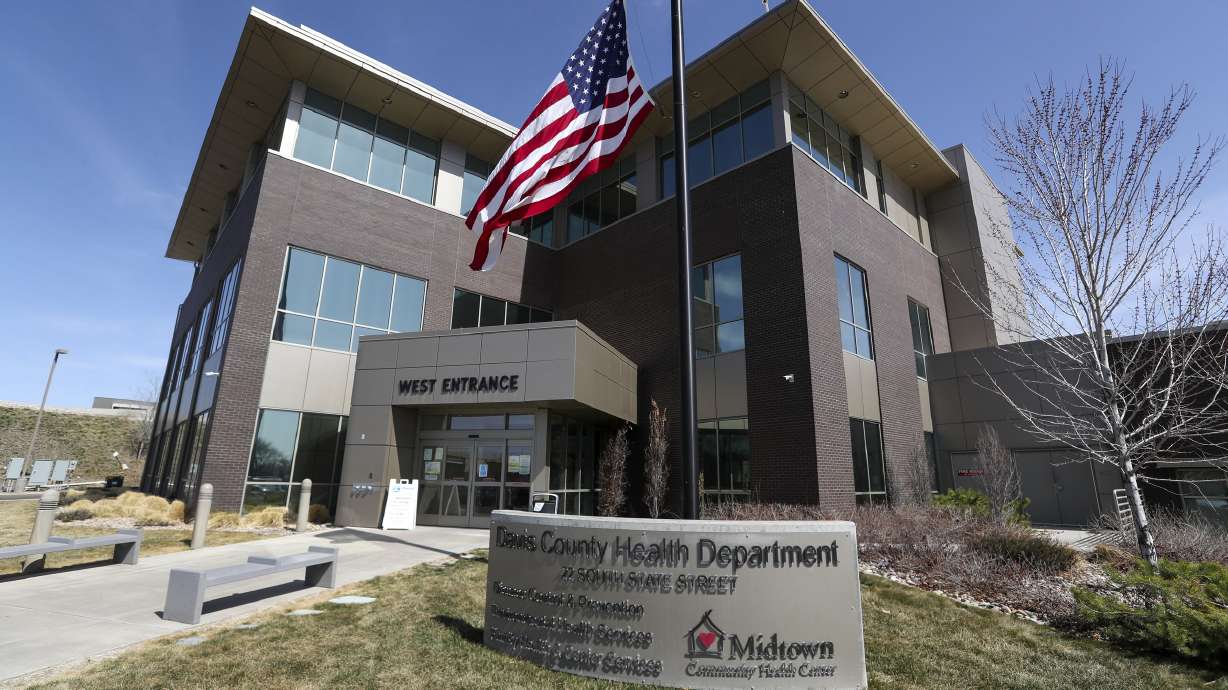Estimated read time: 4-5 minutes
This archived news story is available only for your personal, non-commercial use. Information in the story may be outdated or superseded by additional information. Reading or replaying the story in its archived form does not constitute a republication of the story.
CLEARFIELD — Preschoolers to sixth graders in Davis County were able to participate in a mental health screening Wednesday, which aimed to identify students who can benefit from professional help.
The Davis County Helps Prevention Coalition, with help from the Davis County Health Department, Davis County School District and Davis Behavioral Health, hosted virtual appointments for children — with their parents or guardian — to help review any mental health concerns, which experts say can often go undetected for years in youth.
The coalition meets monthly to discuss prevention of various potentially harmful behaviors, such as bullying, relationship problems and substance abuse. It is currently focused on suicide prevention.
"We know that nearly one out of five adolescents in Davis County needs mental health treatment," Christi Blankman, K-12 Prevention Coordinator for the Davis School District said in a statement. "Also, suicide is the leading cause of death for youth ages 10 to 17 in Utah."
Wednesday's event hinges on the Davis County Mental Health Screening for Youth, which has been held annually in the fall for the past five years. This year's event comes while the community grieves over a recent student suicide.
Isabella "Izzy" Faith Tichenor, 10, died by suicide on Saturday. Her family says that Izzy, a Black student who had autism, was the subject of bullying at Foxboro Elementary and the incidents weighed on her heavily. Many have said the young girl's death could have been prevented with the right interventions.
The most recent Utah public health data show that 62.2% of Utah students in sixth, eighth, 10th and 12th grades reported experiencing moderate depressive symptoms. The same data reveals that 16.4% of student respondents have felt left out; 15.3% felt that people barely know them; 15.3% felt isolated from others; and, 19.4% felt that people "are around them, but not with them."
The coalition is attempting to address and connect students who may be struggling with mental health by hosting targeted events such as the one on Wednesday.
"Residents report that accessing behavioral health services is difficult," Blankman said. "This event is set up to help youth and their families identify if there are any issues and then link them with services."
Blankman and Davis School District staff set up 30-minute appointments with licensed therapists and clinicians from Davis Behavioral Health, starting at 3:45 p.m. until 7 p.m. Wednesday.
The appointments serve as an assessment or an opportunity to "pinpoint" what follow-up may be needed, Isa Perry, the Davis County Health Department health strategy manager, said.
After the initial assessment, Davis Behavioral Health Family Resource facilitators will follow up with families needing further assistance or mental health help. The services offered after an initial assessment can vary from family to family. Resources can include additional discussion, medication for developmental issues, or establishing additional coping skills, Perry said.
To help connect families with resources, the coalition provides the Davis County Youth Services directory, which holds over 150 resources ranging from medical clinics, crisis lines, licensed therapists, classes and training and support groups. Davis Behavioral Health also works to provide lower-cost follow-up services, Perry added.
"It's really kind of bringing all of those resources together in one place so that Davis County residents can more easily find something that meets their needs because we've found that a lot of families are concerned about behavioral health and mental health, but they're just not quite sure how to access the services," Perry said. "Tonight's a really great opportunity for families to meet with a licensed clinician and just get a little bit of advice about, you know, 'is this normal?'"
If safety concerns are identified in the assessment by the clinician or therapist, a safety plan will be created with the youth and family, Perry added.
Another focus of the event will be geared towards technology identified in previous years as "a real point of conflict in their relationships, their homes and sometimes related to the challenges that they're facing."
The coalition will be providing a new resource called a "family media plan." The plan is a worksheet that families can work through to discuss boundaries and purposes of technology within the home.
But the initiative isn't geared toward any specific topic, Perry said. Wednesday's event, however timely for the district, was planned prior to news of Izzy's death.
"There are always people suffering and at risk at any given time," Perry said. "There's usually warning signs, and we're just trying to help parents have access to a therapist and to point them to the services that are available.
"Suicide is an extremely complex issue and there's not usually one cause, but each situation is very unique and very complex."
Registration is no longer open for Wednesday's event, but those who are interested in getting similar help can join a waiting list at dbutah.org. A similar event for children above sixth grade will be held in spring.
Additional classes or trainings centered on mental health for youth ages 6 to 17, as well as adult programs can be found under Prevention Programs or Training on Davis Behavioral Health's site.
Suicide Prevention Resources
If you or someone you know is struggling with thoughts of suicide, call the suicide prevention hotline at 1-800-273-TALK. The Utah Department of Health offers suicide prevention help at utahsuicideprevention.org/suicide-prevention-basics. The National Suicide Prevention Hotline is 1-800-273-8255. Help is also available through the SafeUT app.
Crisis Hotlines
Salt Lake County/UNI Crisis Line: 801-587-3000
National Suicide Prevention Crisis Text Line: Text "HOME" to 741-741
Trevor Project Hotline for LGBTQ teens: 1-866-488-7386
University Of Utah Crisis Interventional Crisis Line: 801-587-3000
Online Resources
NAMI Utah: namiut.org
County Crisis Lines: https://www.namiut.org/families-caregivers/suicide-prevention
Utah Chapter-American Foundation for Suicide Prevention: afsputah.com
Suicide Prevention Lifeline: www.suicidepreventionlifeline.org










